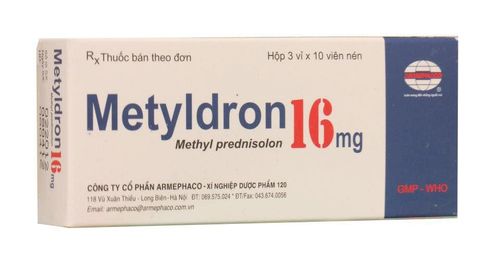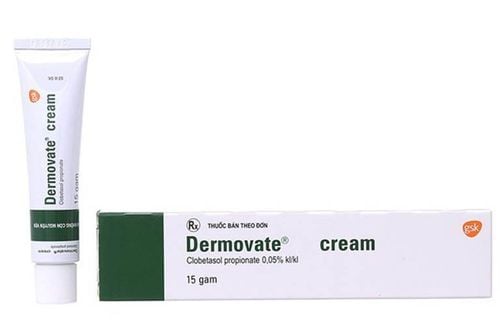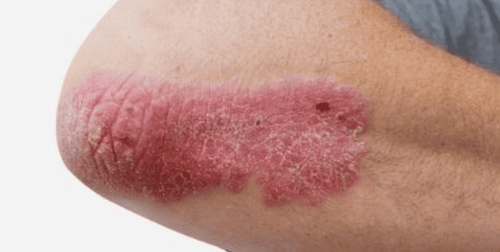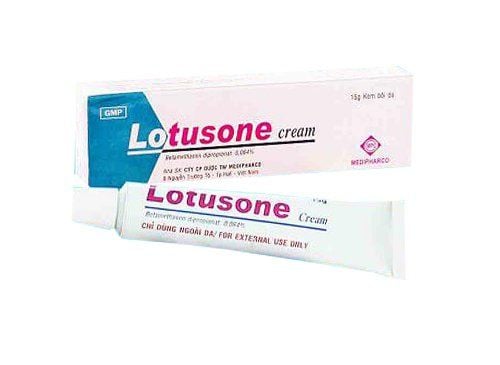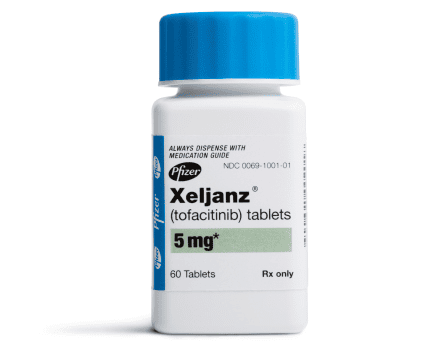This is an automatically translated article.
Lupus and psoriatic arthritis are difficult to distinguish due to many similar features. If you have joint pain and swelling, it could be a sign of one of two conditions. Therefore, the doctor may need to use some more methods to distinguish the 2 diseases, helping to make an accurate diagnosis.1. Symptoms of Lupus
Lupus affects people in different ways. Therefore, each person's perception is not the same even though they are suffering from the same disease. The disease gets worse at certain times and then gets better. Symptoms can be gradual, sudden, permanent, or temporary. Some typical symptoms of lupus include:Rash shaped like a butterfly covering the nose and cheeks Fatigue Pain, stiffness, or swelling in the joints Fever Sensitivity to sunlight or light causes skin damage White or blue coloration in fingers and toes when you are cold or feeling stressed
2. Psoriatic arthritis symptoms
Like lupus, the symptoms of psoriatic arthritis have flare-ups and then subside. As a result, you may experience fatigue, pain, swelling, and warmth in your joints. If you have psoriatic arthritis, you may experience problems such as:Severe swelling in your fingers or toes Foot pain, often in the bottom or heels Pain in your lower back Peeling of scaly patches on your skin Pimpled nails. or change color
3. Causes of Lupus

Một số loại thuốc như thuốc huyết áp hay thuốc chống động kinh có thể là nguyên nhân gây bệnh Lupus ban đỏ
In addition, the cause of lupus also comes from the genes involved in the disease. Some of the triggers include:
Sunlight Infections Medications like blood pressure or anti-seizure medications
4. Causes of psoriatic arthritis
Psoriatic arthritis can occur if you have psoriasis, a skin disease that causes red patches and silvery scales on your skin. However, there are also people who have arthritis before they develop psoriatic arthritis instead of psoriasis.Like lupus, psoriatic arthritis occurs when the immune system attacks healthy cells and tissues. This causes the joints to become inflamed and the cells in the skin to produce too many cells.
What causes the immune system to attack the body when you have psoriatic arthritis, but like lupus, it can be caused by genes and favorable factors.
5. Diagnosis of lupus
You will be asked to do a physical exam and some blood and urine tests to look for clues about the disease. In addition, your doctor may also recommend that you get a chest X-ray to look for signs of fluid or inflammation in the lungs, and an echocardiogram to check heart function.If you have at least 4/11 signs of the disease as recommended by experts at the American College of Rheumatology, you will be diagnosed with lupus:
Butterfly rash Increased red patches on the skin Sensitive with light Ulcers in the mouth or nose Arthritis in two or more joints, plus swelling or pain Inflammation in the lining of the heart or lungs Seizures or other nerve problems Too much protein in the urine Low blood cell counts Certain antibodies in the blood ANA test shows too many "nuclear" antibodies, which can be a sign of lupus

Phát ban dạng hình bướm trên mặt là dấu hiệu điển hình của Lupus ban đỏ
6. Diagnosis of psoriatic arthritis
You may need certain tests to confirm the disease, such as X-rays to look at changes in bones or joints and blood tests that check for inflammation.You may also have a physical exam to determine if there is inflammation and swelling in the joints or signs of psoriasis on the skin and nails. You will also be asked about your medical history.
Doctors can rule out by finding the difference with diseases with similar symptoms. For example, if you only have swelling and pain in a single joint, you may have gout. And if you have no swelling, or very little, you may have osteoarthritis.
Whether you have lupus or psoriatic arthritis, work with your doctor to find the right treatment. Use medicine and other measures to help alleviate the disease.
Please dial HOTLINE for more information or register for an appointment HERE. Download MyVinmec app to make appointments faster and to manage your bookings easily.
Reference source: Webmd.com




